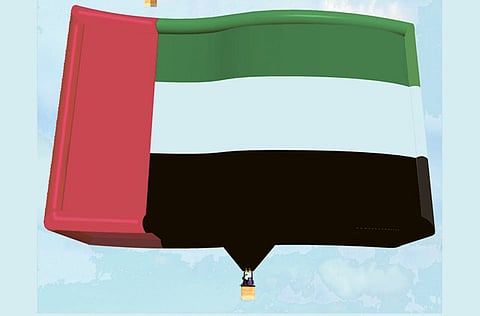The native's right to citizenship
A nation's leadership must ensure the wellbeing of its citizens and provide them with all they need

Most living things, including animals, birds or fish, migrate to find food, water or just move to a better habitat. Man is no exception. The phenomenon of immigration is as old as mankind.
Human beings immigrate for a good life, dignity or social justice that they lost in their home countries. But, in some cases, people are forced to leave their countries under a foreign occupation, while some others flee their countries during war.
Yet, they still long for their homelands.
Apart from loyalty and belonging, citizenship is a special relationship between man and his country — a relationship filled with emotions and sentiments that cannot be measured by material criteria.
This is why true patriotic feelings cannot be managed, controlled or directed by any material means. As the golden rule in administration says: What cannot be measured, cannot be administered.
Citizenship is the feeling that makes one feel that he is part of his nation for which people sacrifice their most precious possessions without waiting for payment or a reward.
Belonging to a homeland is the embodiment of love and turning it from the realm of feelings and sensations into action and work. And, in this case only, it would be possible to measure true citizenship and the extent of belonging to a homeland.
Citizenship describes relationship with a state and with other citizens. Citizenship also indicates a subjective feeling of identity, and social relations of belonging and connection to a nation and to a community. This connection to a nation just looks like one's connection to a family and to a tribe, and hence it cannot be broken or disconnected willingly or by force as one likes or whenever one wants.
It is a step that cannot be taken except through stringent legal rules under the supervision and accountability of the judicial authority and as per the country's constitution and its treaties and conventions with other countries.
Above all, these rules have become values that have also become an integral part of human values stated in human rights declarations as well as in international laws and conventions.
Also, citizenship is a contract between the citizen and the leadership of the country. Under this contract, both parties adhere to constitutional rules governing society, as well as to the legal rules enacted by lawmakers within the framework of the constitutional rules.
Concept of homeland
Therefore it is inevitable that the country's leadership takes care of its citizens who constitute the foundations of society, so as to establish a strong and cohesive society.
It is extremely important for the supreme leadership to ensure the wellbeing of its citizens and provide them with all they need, in order to ensure the survival, sustainability and immunity of its society against all forms of fragmentation and division.
This is mainly because the leadership can count on its citizens who carry the genuine and instinctive qualities that mobilise them to defend their homeland and sacrifice their lives for the sake of their nation.
As for expatriates, ethics require the citizens to respect and welcome the new arrivals and give them all their rights stipulated in laws followed in the country, except the right of citizenship. This is because the right of citizenship is the right of the original people, who have no right to cede it or grant it to others, except in exceptional cases and within very narrow limits dictated by the need.
This simply means that the number of naturalised people, who have been granted citizenship, should not exceed the number of native citizens, because this, if it happens, it will pose a strategic threat to the nation's identity and homogeneity.
This is because expatriates will return to where they come from, if the country is subjected to a threat, according to the theory of biological / spiritual migration.
In case of a grave danger, expatriates will return to their home countries, or to another place where they can find what they are looking for, because they love their native countries or look after their own interests, which is their right to do so.
The country will remain home to its native people who struggle for its sake and sacrifice their lives for it, supplied with their homeland's love, belonging and loyalty.
Dr Khalifa Rashid Al Sha'ali is an Emirati writer who specialises in legal affairs.


